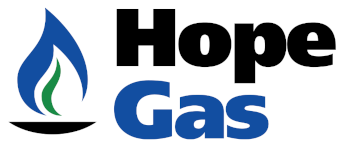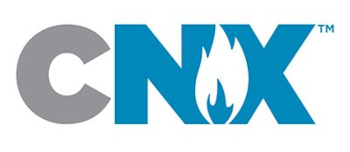One of the things typical in sports is trash talk. You can see it in any NFL game. Players say things to try to get into their opponents head. If the opponent isn’t strong the trash talk creates emotions taking them off their game.
We teach our players to ignore trash talk and focus on the big picture, which is winning the game. Ignoring trash talk to focus on the big picture is difficult and requires mental toughness.
Some years ago, in a championship game, our best player had health issues but still played. Late in the game he beat the defense but didn’t shoot. He dribbled the ball until the defenders tripped over their own feet, then passed the ball through the goalkeeper’s legs for his third goal of the game. He never did anything like that before. When we subbed him out, he told me, “Sorry Coach, they were trash talking making remarks about my illness the entire game, including their coach.” Then added, “I said to their coach, How did you like that one.” What the opposing coach and his players did was cruel and degrading. Our player stayed focused on winning the championship not allowing their cruelty to distract him from his goal.
Recently I was part of an energy panel at a CASE (Council of American States in Europe) virtual conference. Most of the attendees were European companies interested in expanding to the USA. I explained how companies located in our region using our abundant energy and feed stock to manufacture products and sell them in the USA can eliminate 15-20,000 miles of dirty ocean transportation. Displacing products manufactured in China reduces emissions from their coal produced electricity. One of the other speakers remarked, “Wow, you are thinking globally. We are only thinking locally,” If we are truly concerned about the planet, thinking globally is essential. We can then act locally.
Electric vehicles (EVs) have been around a long time. I was in junior high when electric golf carts were introduced at the country club a caddied at. Their goal was to replace some of the caddies carrying golf bags. Electric golf carts were quiet and didn’t produce fumes or smoke like gasoline golf carts. They recharged them nightly. It made economic sense. EVs have a place particularly in large cities. They give people another choice when purchasing a vehicle.
Some automakers are planning to manufacture only EVs. California mandates only EVs and hybrid vehicles be sold after 2035, claiming this will reduce emissions. They missed the big picture. EVs will help clean the air in cities like Los Angeles. They probably won’t help the planet. Cobalt is required for the batteries. Most of the world’s cobalt comes from the Republic of the Congo. They have the largest reserves in the world and produce half the world’s cobalt. Amnesty international estimates 40,000 children are employed mining cobalt in the Congo. The process is dirty and dangerous. Cobalt is shipped to China for processing. China processes over 70% of the world’s cobalt followed by Finland. The USA processes ZERO cobalt. Refining cobalt involves atmospheric leaching with sulfuric acid and Sulphur dioxide.
Lithium is required for rechargeable batteries for EVs. It comes primarily from large mines in South America, China and Australia. The USA has one lithium mine producing 2% of the world’s lithium. Mining requires removing large amounts of soil and rocks impacting ecosystems, threatening endangered species and consumes millions of gallons of water. Cobalt is used for the cathode of a lithium battery. Graphite is used in the anode. Roughly 80% of the world’s graphite production and refining are in China. Only 1.2% of the world’s graphite comes from North America. None in the USA.
Rare earth metals are required for the electronics in EVs and other devices. Rare earth metals are not rare. They are found all over the world but almost all are refined in China because of their weak environmental regulations and cheap labor. For European Union EVs, in 2021 98% of their rare earth metals came from China. China produces 70% of the world’s rare earth metals followed by the USA at 14%.
Americans didn’t like the OPEC oil ministers controlling what we paid for gasoline. We don’t need OPEC oil now. With rare earth metals, refined cobalt, graphite and lithium coming from China, the Communist Party can determine the price and availability of EVs. Electricity for EVs comes primarily from natural gas and coal. Weather dependent electricity is limited and intermittent. The batteries to store weather dependent energy are China dependent.
Work is being done to replace these materials with U.S. sources but is years away. X-Batt a Florida company with a location in West Virginia is working on a replacement for Chinese graphite using West Virginia coal but are years away from commercial production.
The big picture is to reduce global emissions. Last spring at a conference in Chicago, European CEOs said they can replace Russian natural gas with EVs. They had no idea they would be depending on China. Their plan to be “green” will be exploiting children in the Congo, creating radioactive lakes in China, threatening endangered species and creating environmental nightmares around the world. Just because we can’t see the damage in the Congo or China doesn’t make it right.
Like the Butterfly Effect, what we do matters. As consumers what we buy determines what companies manufacture. We can communicate with those in power. Who we vote for matters. We can choose to buy products made in the USA using our energy, our raw materials and U.S. labor reducing emissions and costs. We can choose to think globally, look at the big picture and act. Like my player, we can choose to ignore the trash talk we hear and do what is right for our national security, our family and the planet. We are more powerful than we think.
Greg Kozera, [email protected] is the Director of Marketing and Sales for Shale Crescent USA. www.shalecrescentusa.com (You can follow SCUSA on Facebook) He is a professional engineer with a Masters in Environmental Engineering and over 40 years’ experience in the energy industry. Greg is a leadership expert, high school soccer coach, professional speaker, author of four books and numerous published articles.










